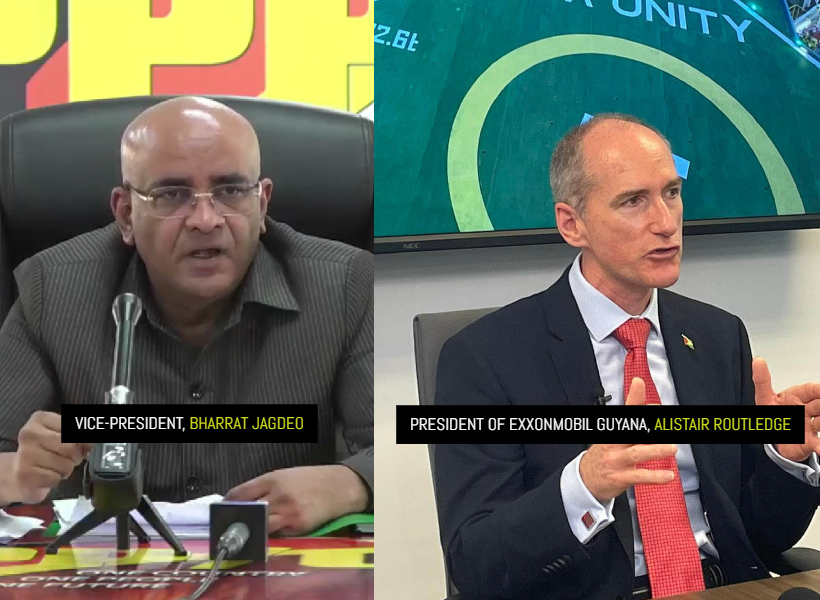ExxonMobil Guyana’s call for authorities to alter the relinquishment provisions of the new model Production Sharing Agreements (PSAs) to suit its preference for a more lenient framework is an utterly misguided expectation, says Vice President, Dr. Bharrat Jagdeo.
During a press engagement on Thursday, the Vice President said the core provisions of the new PSAs governing shallow water and deepwater blocks received stellar input from internationally renowned consultancy group, IHS Markit. He said the government will not bend over backwards to relax any of those provisions simply because Exxon submitted feedback indicating that they are challenging.
The official’s comments follows those which were made earlier in the week by ExxonMobil’s Country Manager, Alistair Routledge. He told media operatives that Exxon submitted a bid for a deepwater concession featured in the country’s maiden auction. Routledge said Exxon informed authorities that it would not be signing the PSA as is since the terms for relinquishment “are unusually short” by industry standards and would make the hunt for oil even more challenging.
In the model PSA for deepwater blocks, it states that an exploration licence will last for 10 years. After the first three years of working on the block, the oil company would have completed the first phase of the licence and would have to renew it, should it wish to enter the second phase lasting for another three years. The consequence of that renewal is that the company would have to return 50 percent of the block to the State.
Upon completing the second phase, if the company wishes to advance to the third stage of the licence lasting for two years, it may do so only after relinquishing another 50 percent of the existing block.
If it wishes to apply to use the remaining two years on the licence then it would have to relinquish another 50 percent of the block.
While Routledge believes that the foregoing terms are too stringent, Vice President Jagdeo said this is not the case.
“We had our new draft PSAs and the Petroleum Activities Bill (now law) drafted by a group, IHS Markit that has international expertise in the oil and gas sector, they are very familiar with the fiscal regimes and relinquishment regimes in other parts of the world…
“They suggested that we strengthen the lose arrangements that we had for acquiring blocks and then relinquishing areas after a certain period of time. They put in there, what they believe is a global norm,” the Vice President said.
The official added that the aggressive relinquishment provisions of the PSA allow for effective management of the oil sector by ensuring companies do not acquire blocks and sit idly on portions that are not being used.
“I am not saying the PSA is hard and fast and nothing or minor things, when we get to the contracting stage, we won’t change but the core terms won’t change. We won’t weaken the PSA to suit Exxon.
“If they don’t want to sign it, then fine, they don’t need to. But we are not going to just change this PSA and make it the way Exxon wants it. That probably happened in 2016 (when the lopsided Stabroek Block PSA was negotiated)…If they were sweetened by that approach it wouldn’t happen now,” the Vice President said.













